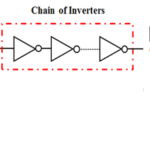In a world where data privacy and security are paramount, zero-knowledge proofs (ZKPs) have emerged as a groundbreaking cryptographic innovation. ZKPs allow one party (the prover) to prove to another party (the verifier) that they know a specific piece of information without revealing the actual data. This seemingly paradoxical concept has been a significant area of research in cryptography, especially with the rise of blockchain technology and decentralized applications (dApps).
At its core, ZKPs work by enabling a system where the prover convinces the verifier of the truth of a statement without sharing the underlying data. For instance, imagine you want to prove that you know the password to a system without revealing the password itself. ZKPs make this possible, ensuring privacy and security in the process.
The impact of ZKPs is particularly evident in the world of blockchain and decentralized finance (DeFi). In public blockchains like Ethereum or Bitcoin, all transaction data is transparent and accessible to anyone on the network. While transparency has its advantages, it also raises concerns about privacy. ZKPs can mitigate these concerns by allowing users to prove the validity of transactions without revealing the details of the transaction itself.
Projects like Zcash have already integrated ZKPs to offer private and anonymous transactions on their blockchain, setting a precedent for other platforms. Additionally, Layer 2 solutions such as zk-Rollups are using ZKPs to scale Ethereum transactions while maintaining both security and privacy. By compressing transactions and proving their validity through ZKPs, zk-Rollups can handle more transactions without overloading the Ethereum network.
ZKPs also have applications beyond blockchain. In sectors like healthcare, finance, and government, ZKPs can ensure secure data sharing without exposing sensitive information. For instance, a hospital could verify a patient’s medical history without revealing any specific details, or a bank could verify a customer’s identity without exposing personal data.
Furthermore, as governments and organizations worldwide enforce stricter data privacy regulations, such as the General Data Protection Regulation (GDPR) in Europe, ZKPs are becoming increasingly relevant. ZKPs offer a way to achieve compliance with such regulations by minimizing data exposure while still enabling verification processes.
The future potential of ZKPs is vast. As privacy concerns continue to grow in an increasingly interconnected world, the demand for solutions that balance transparency and security will only increase. ZKPs stand at the forefront of this movement, providing a cryptographic tool that ensures privacy without compromising on security.
In conclusion, zero-knowledge proofs represent a paradigm shift in how we approach data privacy and security. With applications ranging from blockchain to secure communications and financial transactions, ZKPs are set to play a crucial role in the future of cryptography. As more industries adopt ZKP technology, the balance between transparency and privacy will continue to evolve, offering innovative solutions to some of the most pressing challenges in today’s digital world.


